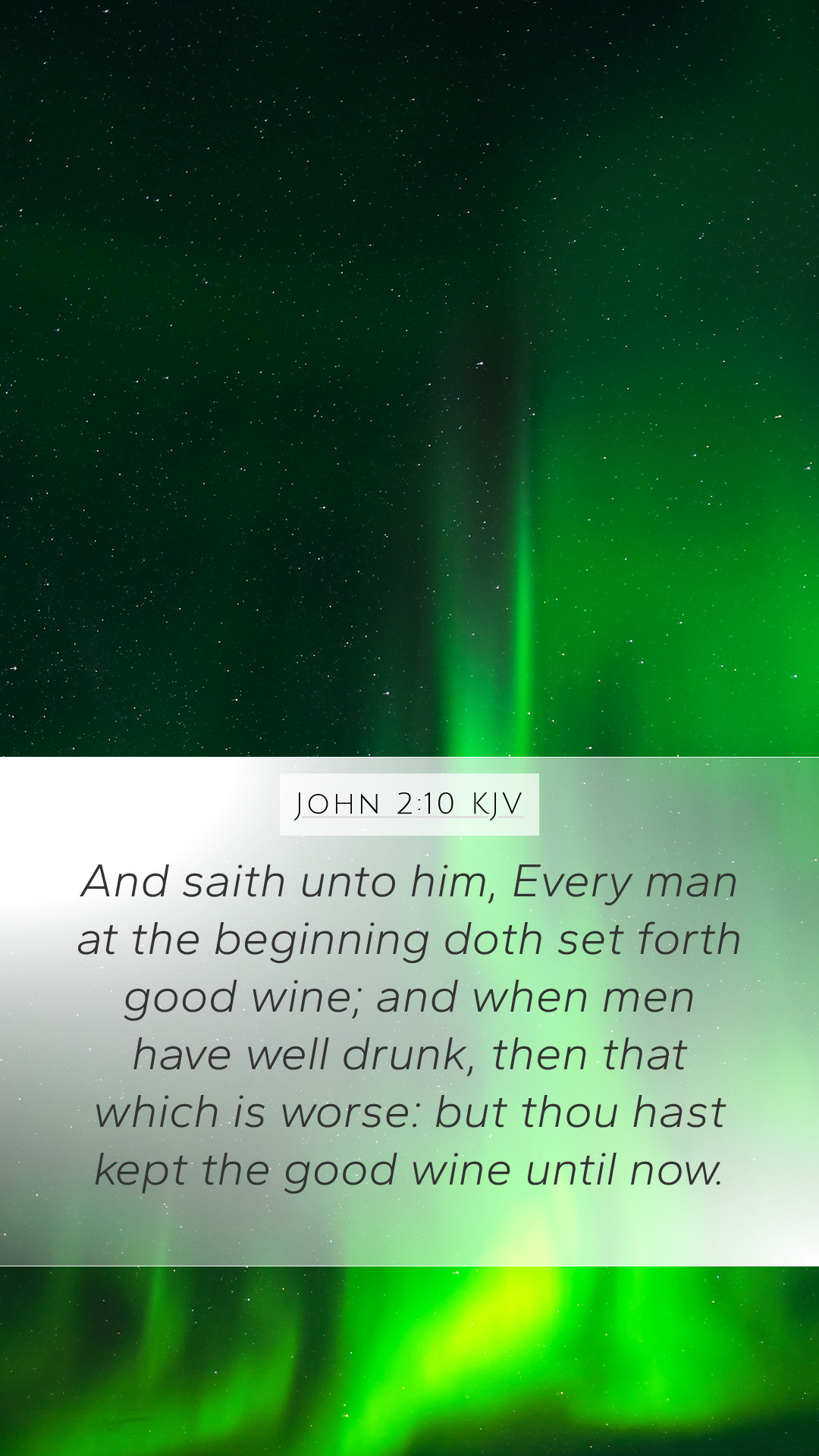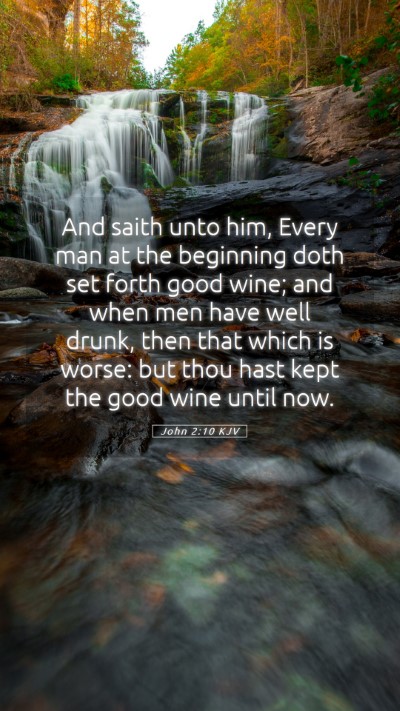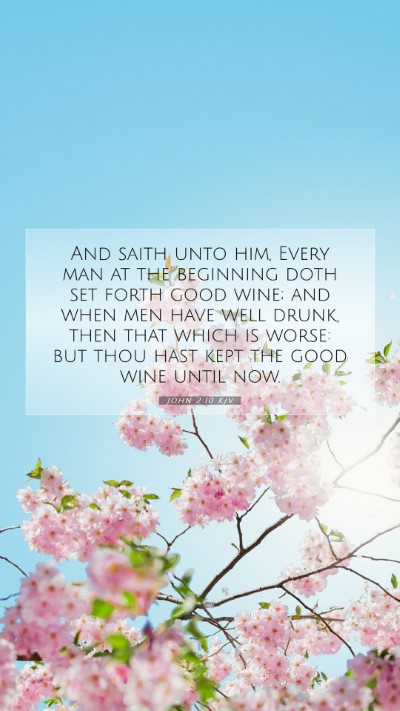Old Testament
Genesis Exodus Leviticus Numbers Deuteronomy Joshua Judges Ruth 1 Samuel 2 Samuel 1 Kings 2 Kings 1 Chronicles 2 Chronicles Ezra Nehemiah Esther Job Psalms Proverbs Ecclesiastes Song of Solomon Isaiah Jeremiah Lamentations Ezekiel Daniel Hosea Joel Amos Obadiah Jonah Micah Nahum Habakkuk Zephaniah Haggai Zechariah MalachiJohn 2:10 Meaning
What is the meaning of John 2:10?
And saith unto him, Every man at the beginning doth set forth good wine; and when men have well drunk, then that which is worse: but thou hast kept the good wine until now.
John 2:10 Bible Verse Meaning
Meaning and Explanation of John 2:10
John 2:10 states: "And saith unto him, Every man at the beginning doth set forth good wine; and when men have well drunk, then that which is worse: but thou hast kept the good wine until now."
Introduction
This verse is situated in the context of the first miracle performed by Jesus at the wedding in Cana, where He turned water into wine. The significance of this act is profound not only for its miraculous nature but also for its theological implications regarding Jesus' identity and mission.
Bible Verse Meaning
Understanding this verse requires an exploration of both the cultural context of the time and the spiritual symbolism involved. Here, Jesus is commended for serving the best wine last, contrasting with the custom of saving the inferior quality for later, and emblematic of Jesus' role in bringing transformation.
- Cultural Context: In ancient Jewish weddings, it was customary to serve the best wine first, with the poorer wine following after guests had drunk freely. The expectation was that the quality of the wine would decline.
- Miraculous Provision: By providing the best wine later, Jesus signifies not only His divine capability to transform what is ordinary into extraordinary but also His role as the ultimate provider in times of need.
- Theological Implications: This miracle acts as a foreshadowing of the New Covenant, where Jesus offers spiritual sustenance far superior to the old ways, epitomized by the wine representing joy and blessings.
Commentary Insights
In examining John 2:10 through the lens of public domain commentaries, we draw from the wisdom of:
- Matthew Henry: Henry emphasizes that this miracle reveals Christ's glory and garners the faith of His disciples. The quality of wine signifies the abundance of blessings in the Kingdom of God.
- Albert Barnes: Barnes points out that this miracle illustrates a divine reversal of expectations, showcasing the lavish generosity of God. It also symbolizes the spiritual quality of Jesus' ministry, which is far superior to what had come before.
- Adam Clarke: Clarke engages with the notion of the wine serving as a representation of joy and cheerfulness that is found in the Kingdom of Heaven. He comments on the joy that Jesus brings into the lives of believers.
Application and Significance
The application of John 2:10 transcends the narrative of a mere wedding miracle, inviting believers to embrace the abundance and freshness of Jesus' blessings in their lives.
- Joyous Transformation: Just as the water was transformed into wine, Christ can transform our lives, filling us with joy and hope.
- Lasting Quality: We are reminded to seek the best that God offers, which far exceeds the worldly standards we often settle for.
- Understanding the New Covenant: This passage invites readers to appreciate the new spiritual realities that Jesus embodies, which bring renewal and life to all who believe.
Bible Cross References
- Matthew 26:29: Jesus speaks of drinking anew in His Father's kingdom, symbolizing the fulfillment of joy in the New Covenant.
- Isaiah 25:6: A prophecy about a feast of rich food and well-aged wine points to the eschatological joy in God's Kingdom.
- John 7:37-39: Jesus invites those who are thirsty to come to Him, highlighting Him as the source of eternal satisfaction.
Conclusion
In summary, John 2:10 serves not only as a testament to Jesus' miraculous powers but also as a deeper theological insight into His ministry and the blessings He extends to humanity. The commentary of public figures like Matthew Henry, Albert Barnes, and Adam Clarke enhances our understanding of this profound truth, encouraging believers to engage with the richness of Scripture. The verse invites reflection on how we, too, can partake in the new wine Jesus offers, seeking the highest quality of life in faith.


